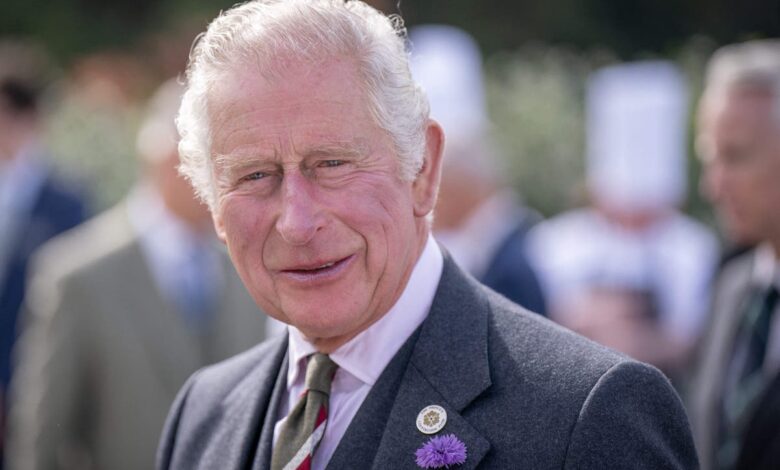How will King Charles adjust to life as head of state?

It seems obvious, a cliche – and a bit trite – but it has to be said in the most respectful terms possible: Queen Elizabeth II is a hard act to follow. King Charles will inevitably have a much shorter reign. He inherits a nation with its global status much denuded in comparison within the global, imperial domain his mother found herself at the head of in 1952.
The Commonwealth has eclipsed empire and most of the old colonies have opted to retain their loose, voluntary association with the crown, but are firmly self-governing and most are republics. The face of the multicultural nation has changed. Yet, oddly, the Queen – born in a more conservative age into a highly conservative family – seemed not only able to adapt to a more diverse Britain, but to encourage and relish it. She didn’t alienate her “old school” subjects.
The Queen accrued such prestige and respect over 70 years that she was basically unassailable, untouchable. Charles doesn’t have that advantage – and even as sovereign will find himself wide open to critical assault. The age of deference is over for the right, as well as the left.
Optimistically, he may settle into the role and gain respect as King by making himself useful and behaving himself. There is a strong echo here of the death of Queen Victoria in 1901, at the end of another lengthy and momentous reign – and the accession of her feckless, self-indulgent son and then-Prince of Wales, crowned Edward VII. He made it his business to assist his ministers and repair the historically poor relationship with France with a highly successful state visit. He also carefully navigated the treacherous politics of the time and did his best to avoid constitutional crises over the abuse of powers by a populist government. Sounds quite familiar, doesn’t it?
But, of course, the potential problems for the next reign are equally apparent. Charles’ reportedly critical remarks about the government’s plan to deport refugees to Rwanda certainly earned him some stinging rebukes from the right of politics.
The question now is whether he can give up his outspoken ways – which funnily enough used to annoy his equally outspoken father – and avoid saying things he probably shouldn’t, in private as well as public. His critics are all too ready to label him “woke”, eccentric, spoiled, or all of the above. If he can change his habits – and charm his public – then he will redeem himself as comprehensively as did his great-great grandfather. By his side, famously, will be a descendant of one of his great-great-grandfather’s many lovers. A trip to Paris might be a good idea, and help the jury to deliver a verdict of “friend”, to recall Liz Truss’s recent remarks.
On one level, there has never been an heir to the throne better prepared for the role of head of state as Prince Charles. After some 52 years as Prince of Wales – and 70 as heir apparent – he has enjoyed (though that may be overstating it) the longest apprenticeship in history. He has been being prepared for it, just about, since his christening; filmed for the occasion with his grandfather, King George VI, and his great grandmother, Queen Mary (born 1867) – widow of King George V.
At the age of four, he attended his mother’s coronation, looked after by his grandmother – the Queen Mother. He was sent to Gordonstoun school (which he hated) and Trinity College, Cambridge to advance his education, and at Cambridge he was given a former deputy prime minister, RA Butler, to offer him guidance and informal “political” advice.
The training programme has been methodical. He had his own mini coronation as Prince of Wales in 1969, in a ceremony that combined modernity – Perspex chairs – with Ruritanian flummery. He rounded off his early life with a spell in the Royal Navy, like so many of his predecessors.
The Queen and Prince Philip were always reluctant, for a variety of reasons, to retire and allow their son to take over, even during the Charles ‘n’ Di mania in the mid 1980s. At that point, the unsurpassed peak of Charles’s popularity (ironically, derived from his wife’s charisma), there was serious talk of abdication and this glamorous young couple taking over, almost by public acclaim. Perhaps his parents had a better idea of his shortcomings than the public – and were no doubt better informed about the state of the Wales’s marriage. In any case, they dragged their feet on giving him anything of consequence to do.
However, by the early 1990s, with the Queen emerging her 70s, Charles was at last given access to confidential state papers, including cabinet minutes (though they tend to uninformative). In recent years, the Prince of Wales also took on more of the other foreign visits, important ceremonial roles, including Remembrance Sunday and the State Opening of Parliament (though on that latter occasion he had to share the role with a glittering crown on a cushion, apparently as a reminder to all concerned, including him, that she was still head of state).
Charles is now as inured to public attention as he can be. He has lived his life, including his love life, and often reluctantly, in the public gaze. His first wedding, to the superstar Diana, was watched by millions on television – and the disintegration of that union was peered at and gawped by more millions. The “Tampongate” tapes were probably a low point for embarrassment, though one of many. In terms of his fitness to be head of state, he has definitely recovered from the aftermath of the death of Diana in 1997.
At that moment, the royal family gave off the impression of being cold and uncaring, conforming to a caricature version of the Windsor way of doing things. It was a dangerous moment for the institution of the monarchy itself. It was tottering – salvaged only by the Queen taking her prime minister’s advice to come from Balmoral to London and make a television broadcast. Tony Blair’s reward, the order of the garter, was a long time coming.
Charles’s behaviour towards the late, beloved princess made him the most hated man in Britain: Camilla Parker-Bowles, his “mistress” (to use the misogynistic term current at that time) the most hated woman in Britain. In that respect, at least they were together.
Yet at this distance, we can now see what an important and beneficent role Camilla has played in his mellowing into a rather jolly, happy, ruddy faced old gentleman – 75 next year. Since their marriage at Windsor Register Office in 2005, they seem to have found a happiness that eluded them for so long, though late in life.
Gradually, “Operation PB” carefully promoted Camilla’s public acceptance – and as Diana’s memory faded, Camilla became more part of the royal gilt wallpaper. She took up charitable causes, such as osteoporosis, made a few speeches, smiled, appeared with her husband on a Platty Joobs edition of EastEnders, and did her best to charm the public. Earlier this year, the Queen stated it was her “sincere wish” that Camilla be recognised as Queen Consort when Charles ascended the throne. “Her Majesty Queen Camilla” it is then, something unthinkable even a few years ago.
Unlike his great uncle David (another ex-Prince of Wales and later Edward VIII), and – in a minor key – his son Prince Harry, Prince Charles has been able to marry the woman he loved and retain his royal position. He has had his cake and eaten it, not least though a remarkable sense of determination, the flip side to his rumoured stubbornness and grumpiness.
A happy king, then, in a way denied him in the past – albeit he must be judged to the author of his own misfortune, as he must have had some agency over his marriage to Diana. He has had all the training, experience and the example of his mother to draw upon, and he’s shown every indication that he understands the difference between being prince of wales and king.
In 2018, marking his 70th birthday, he put it on the record, though unrepentant at previous interventions: “You can’t be the same as the sovereign if you’re the Prince of Wales or the heir. But the idea, somehow, that I’m going to go on in exactly the same way, if I have to succeed, is complete nonsense because the two – the two situations – are completely different.”





